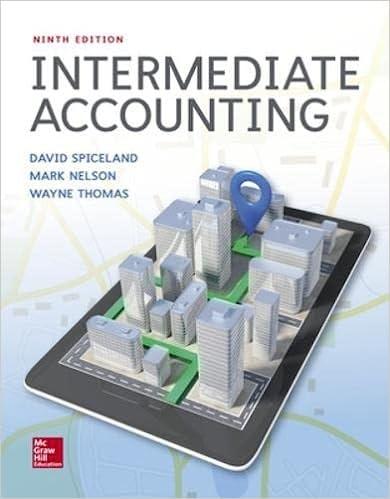Companies often voluntarily provide non-GAAP earnings when they announce annual or quarterly earnings. These numbers are controversial
Question:
Companies often voluntarily provide non-GAAP earnings when they announce annual or quarterly earnings. These numbers are controversial as they represent management’s view of permanent earnings. The SarbanesOxley Act (SOX), issued in 2002, requires that if non-GAAP earnings are included in any periodic or other report filed with the SEC or in any public disclosure or press release, the company also must provide a reconciliation with earnings determined according to GAAP.
Professors Entwistle, Feltham, and Mbagwu, in “Financial Reporting Regulation and the Reporting of Pro Forma Earnings,” examine whether firms changed their reporting practice in response to the regulations included in SOX.
Required:
1. In your library or from some other source, locate the indicated article in Accounting Horizons, March 2006.
2. What sample of firms did the authors use in their examination?
3. What percent of firms reported non-GAAP earnings (referred to as pro forma earnings by the authors) in 2001? In 2003?
4. What percent of firms had non-GAAP earnings greater than GAAP earnings in 2001? In 2003?
5. What was the most frequently reported adjusting item in 2001? In 2003?
6. What are the authors’ main conclusions of the impact of SOX on non-GAAP reporting?
Step by Step Answer:

Intermediate Accounting
ISBN: 9781259722660
9th Edition
Authors: J. David Spiceland, James Sepe, Mark Nelson, Wayne Thomas





